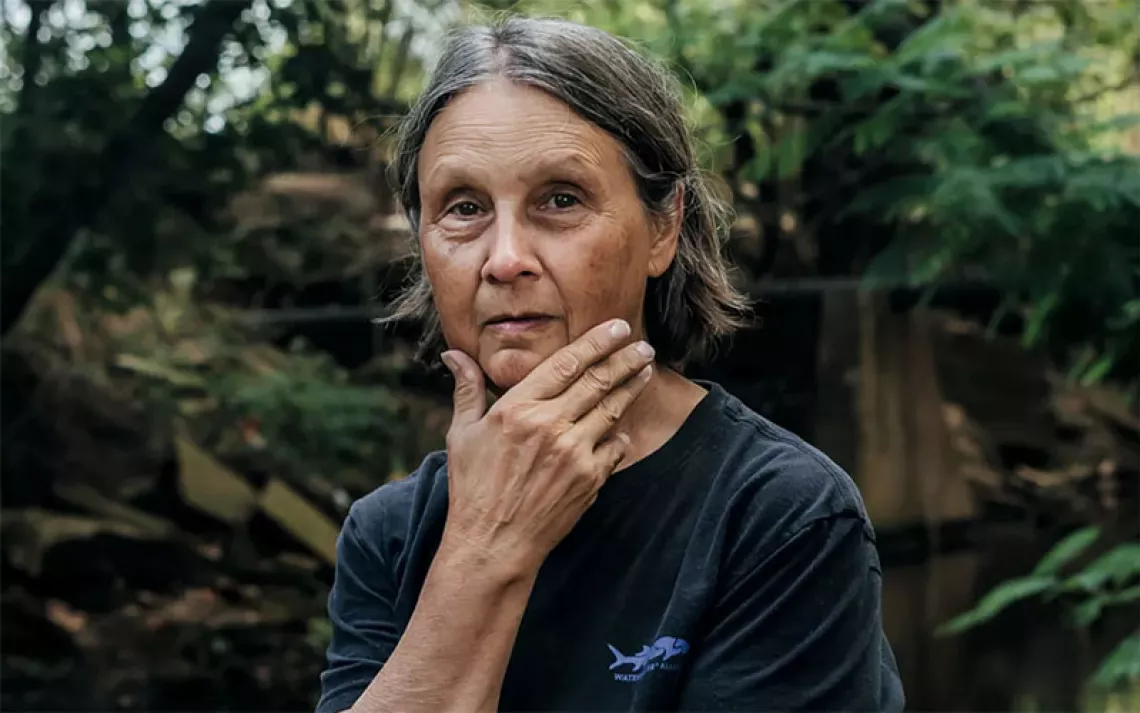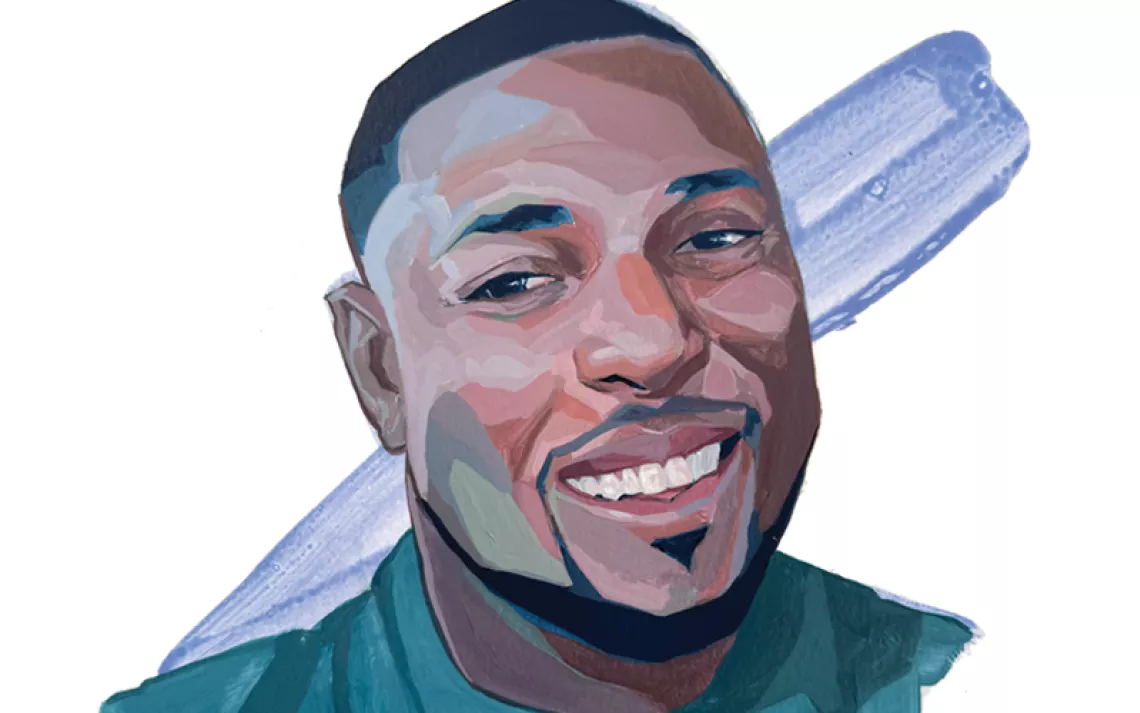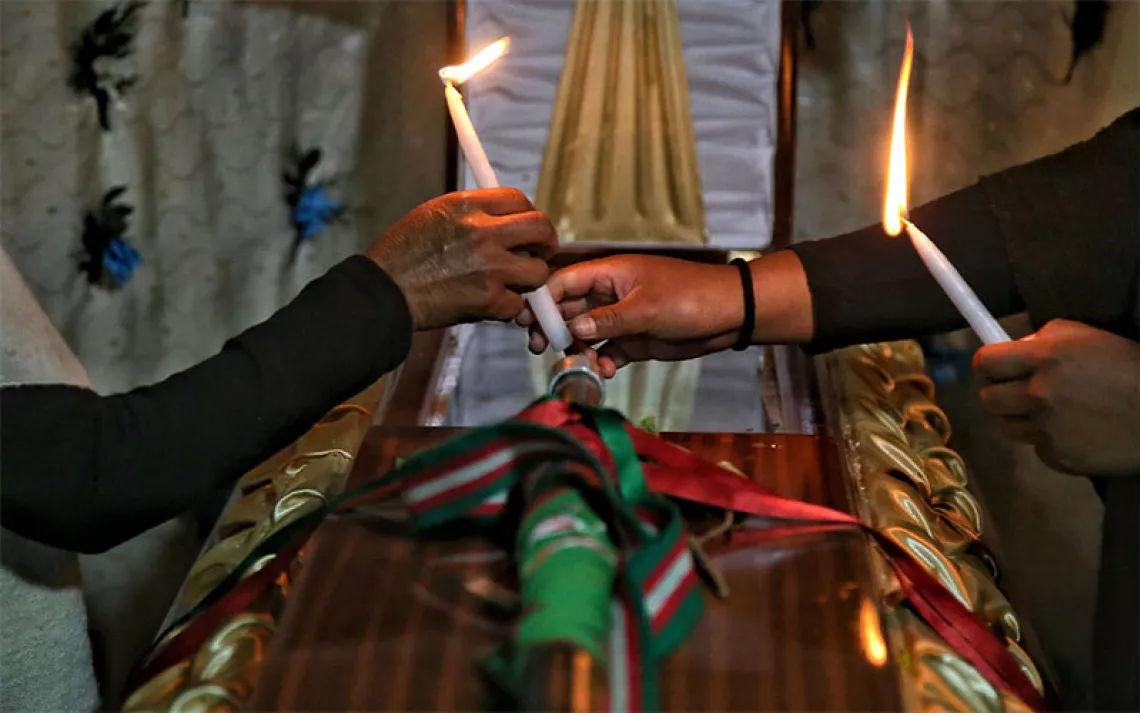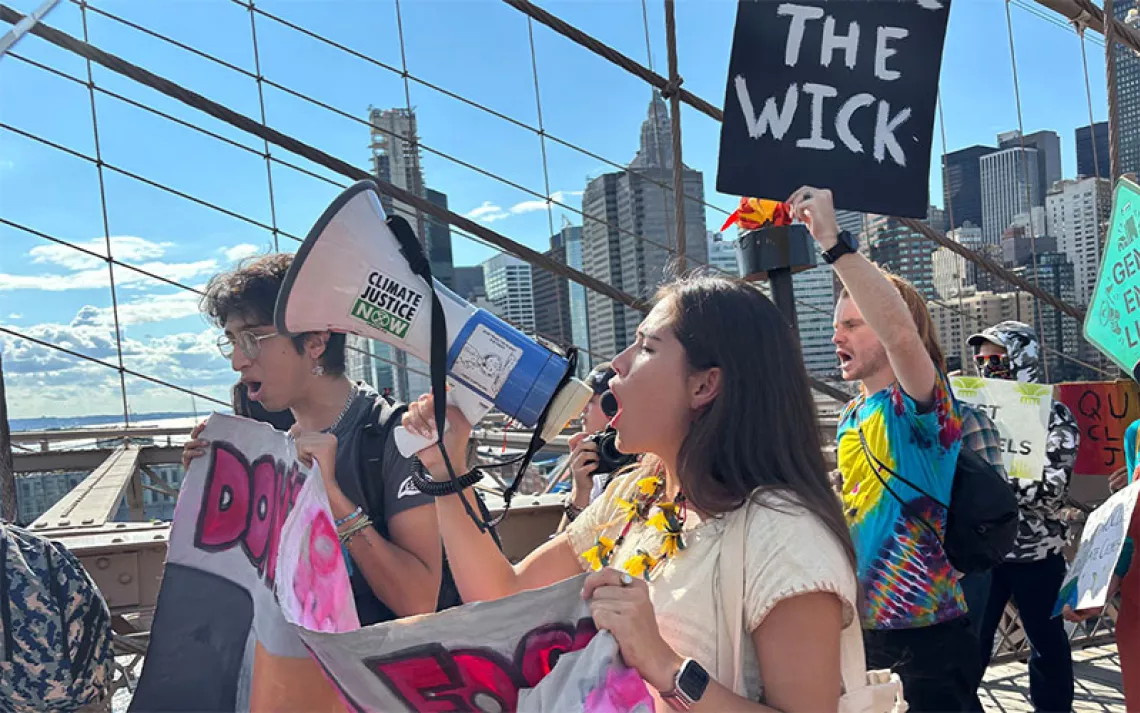This Puerto Rican Organizer Sees a Path for Light and Hope
Adriana Gonzalez is helping bring clean energy to the island
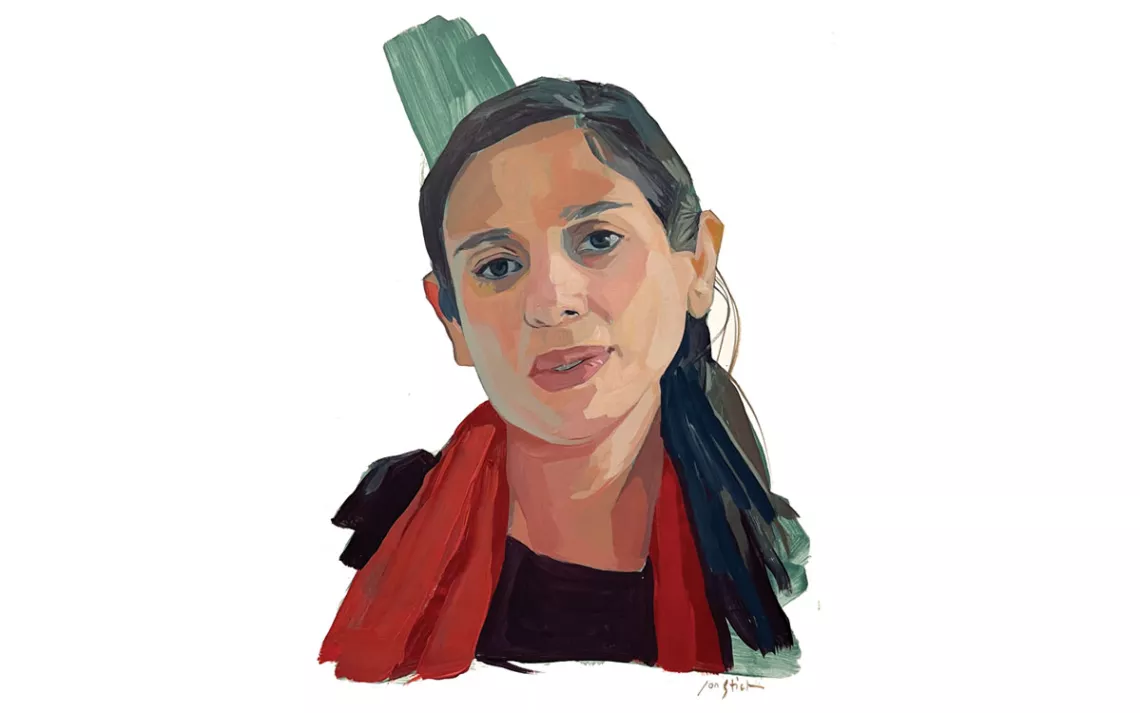
Illustration By Jon Stich
When I was a child, my parents were part of a community-led fight in the town of Adjuntas to stop mining in the central region of Puerto Rico. Because of that work, I realized that I couldn't take all the beautiful things that we have on this island for granted. So I started volunteering with the Sierra Student Coalition when I was in eighth grade.
The goal of the student coalition is to get youths involved with the Sierra Club and also give them tools to create their own campaigns. I participated in a summer program that trained youths on how to talk to the media and how to lobby and all those basic grassroots tactics. After that, I started to get involved in our local chapter, which had just started the year before.
The chapter's conservation campaign was geared toward protecting a stretch of land called the Northeast Ecological Corridor, near El Yunque National Forest. There was a proposal to create a big hotel and luxury condos in the area, but that stretch of land is a critical habitat for the leatherback sea turtle. This was the first campaign that the Sierra Club supported here in Puerto Rico.
When I was about to graduate high school, I went to the United Nations climate summit in Cancún, Mexico, on behalf of the Sierra Club, and it was the first time that I was in an international environmental setting. After that, I started to wonder how best to raise the voices of not only colonized nations like Puerto Rico but also all the people who are on the front lines of the climate crisis.
In 2013, I started a staff position at the Sierra Club. It was a pivotal moment. A company called Energy Answers was trying to get permits to build a waste incinerator in Arecibo. The folks from the community started a camp in front of the proposed incinerator site. We said, "We need to start giving people a bit of hope," because waste is an issue in Puerto Rico. We are a small island, and our waste management is horrible to nonexistent. We also started recycling programs in schools and communities and at music festivals, and we joined the international zero-waste movement.
We were trying to pass a bottle bill and a plastic bag ban. We passed the plastic bag ban in 2015. But then everything changed in 2017. When Hurricanes Maria and Irma hit, the area where the incinerator was going to be built got flooded with, like, 16 feet of water. After that, Energy Answers abandoned its proposal.
With the fundraising and campaign support from the Sierra Club, the local chapter started thinking about ways to help hurricane victims. We distributed thousands of solar lamps. That was an incredible experience, because when we talk about clean energy, it's abstract to people. Giving out those lanterns was literally bringing light and hope.
Now our chapter is focused on transforming our island by supporting clean energy and continuing to push for zero waste. The climate crisis is real, and we in Puerto Rico are living it. In the past year, everyone in Puerto Rico has felt the climate crisis one way or another. In the mountains, some people have been without power for almost a year and a half.
I hope that we can start building solar systems on rooftops. We're already working with organizations and community groups that are doing that. And I'm continuing all the other work that I've been doing—protecting wildlife habitat and fighting for frontline communities. At the end of the day, we're all fighting the same issues.
 The Magazine of The Sierra Club
The Magazine of The Sierra Club
